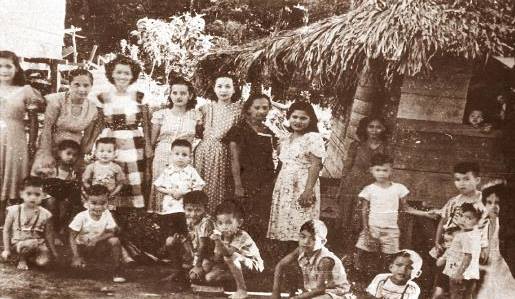I can still remember the one-time stalwart of Philippine Left in the 50s Mr Luis Taruc during one of the critical times of Philippine history. I remember doing an interview with him in 2004 about a year before his death who told me that ‘People should take me as I am, with my defects.’
Taruc was the only figure of the Left who rose to influential leadership in Philippine legislature during the social turmoil under the term of President Elpidio Quirino, but cut short by the rise in political prominence of the so-called ‘man of the masses’ former Defense Secretary and eventual President of the Philippines Ramon Magsaysay. Taruc consequently surrendered to President Magsaysay after a short-lived rebellion in which he brought along with him to the mountains a number of well known left-leaning politicians.
Mr Taruc said, ‘My code in life has always been sincerity and honesty. These are the ideals my father inculcated in me. He had always been my model in modesty, honesty, and integrity. My mother, too, inspired me with her righteousness, courage, and warmth of character.’
That was the very first and only contact I ever had with a person known for his Left wing ideas and activities. Meeting and talking with Luis Taruc whom I have known only through readings and lectures at the university became another important learning experience for me.
Our discussion went from one topic to the other, but mostly centered on his love of country and his concern for the next generation of Filipinos, including the return of ‘interference’ of the Americans in the country’s affairs, he had seen through thedecisions of then Arroyo government concerning Americans influence in the government.
Luis Taruc who fought as a ‘war leader’, first during his time with the Hukbong Bayan Laban sa mga Hapon (the People’s Army Against the Japanese) and with the Hukbong Mapagpapalaya ng Bayan or ‘People’s Liberation Army’, was still a fighter during that interview. The first was abbreviated Hukbalahap and the later HMB, or simply referred to as Huk.
I had a feeling during that important talk with Taruc that he would die a fighter for his cause even at that ripe age of 91 years still fighting for peace for the country.
Taruc was direct to the point when he talked of his passion – love of country and national consciousness. In fact, he elaborated to me his poem in Filipino entitled Tatsulok na Kamulatan (Triangle of Consciosuness). He also penned another piece titled Inang Bayang Pilipino (Mother Country Philippines).
Although that talk was informal, one interesting point I could remember was his up-to-date knowledge of current issues affecting, not only the Philippines, but outside the country, as well. He strongly criticised the then Arroyo administration’s decision to participate in the Americans’ Coalition of the Willing. In a public statement, he strongly criticised the decision of the government to volunteer Filipino troops to the invitation of then President George Bush for the Philippines to be part of the war against terrorism.
Taruc believed during that brief interview that Arroyo missed the golden opportunity to recover from whatever shortcomings and negligence of her government and wished that she could have resolved and acted decidedly at that eleventh hour of her presidency.
Taruc was born Luis Mangalus Taruc on 21 June 1913 to a farmer family of San Luis, Pampanga. A nationalist and left leaning leader of the masses. He joined the nationalist movement after realising the real problems confronting Filipino farmers when he was still attending school. He became a member of the Communist Party of the Philippines in 1935 at the age of 22 years old.
During the Second World War he headed the Hukbalahap (Hukbong Bayan Laban sa mga Hapon), a group of Filipino rebels from 1942 to the Cold War years. Prior to the war he was regarded as political figure and insurgent during the agrarian unrest of the 1930s. The opposition activities of the Huk continued during the Roxas administration when Taruc and seven other members of the Communist Party of the Philippines were elected as member of the House of Representatives of the Philippine Congress.
When they were prevented from taking their places in the legislative body of the country, the group returned to the hills and continued their fight against the government. In particular, the Taruc group continued opposing the Parity Rights Agreement signed between the Philippines and United States where the Americans were given the same rights given to Filipinos to exploit the natural resources of the county.
At the height of the Hukbalahap movement, its members increased from 10,000 to 170,000 members, mostly farmers, and a base of two million civilian supporters at the apex of their power in 1952.
The Hukbalahap later became HMB or Hukbong Mapagpalaya ng Bayan and almost the entire Central Luzon area was controlled by the HMB in 1950. Because of the huge problem posed by the HMB then President Elpidio Quirino designated Ramon Magsaysay as the secretary of national defence of the Philippines to fight the Huk movement.
A sympathetic strategy to the farmers was adopted by Magsaysay coupled with reform in the military. Taruc surrendered in 1954 to the government and signalled the end of the Huk movement in the Philippines.
Taruc was charged in court for fighting the government and terrorism and sentenced to 12 years imprisonment. He was pardoned in 1968 by then President Ferdinand E. Marcos. After his release from prison, he continued his land reform advocacy. He continued his fight for the rights of the farmers through changes in the relationship between landlord and tenant farmers, particularly the rights of the farmers on their farms.
It was this stage of his life that his autobiography titled Born of the People (1953) and He Who Rides the Tiger (1967) came out using the penname Alipato.
Many believe that William Pomeroy, an American writer who was involved in the Huk Movement, was the ghost writer of his autobiographies. His Born of the People was reported to have been the reference of Nelson Mandela in his revolutionary fight in South Africa.














Leave a Reply